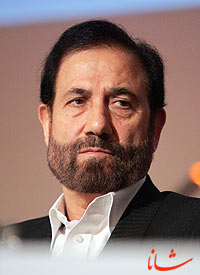He made the statement in the 2nd International Conference on Challenges & Opportunities of Iranian Companies in Oil & Gas Contracts.
The NITC chief said the offshore development plans were implemented in South Pars, North Pars, Golashan, and Ferdows gas fields.
“South Pars field is developed in 24 phases and each phase has an about 25 million cubic meter of gas production capacity and the ratio of liquefied gas to natural gas stands at 1:600,” said the official.
According to him, the 24 phases of South Pars field would yield 182.5 million tons of liquefied gas per annum.
“If each ton of liquefied gas costs 300 dollars,
Souri added that the gas field would produce 48 million tons of gas condensates per year.
He said each phase of the SP field would produce 200 tons of sulfur, adding the total production of 24 phases would exceed 1.752 million tons.
Shifting to the value of LPG the SP field would produce, the NITC managing director forecast that the 24 phases would fetch the country over 83 billion dollars.
Souri said North Pars, Golashan, and Ferdows gas fields would totally produce 40 million tons of gas annually.
“According to the prediction, the four fields have the capacity to produce for 61 years, earning the country 6.213 trillion dollars,” he added.
The official concluded that the country could earn as much as oil revenue through selling gas in the upcoming years.
The two-day 2nd International Conference on Challenges & Opportunities of Iranian Companies in Oil & Gas Contracts ended here Sunday.
Top oil and gas officials delivered speeches in the gathering.
Oil Minister Gholam-Hossein Nozari said the government was after open competition, making every effort to create opportunities for participation of domestic contractors in oil and gas projects.
He said the cabinet was duty-bound to support the private sector, adding, “If the related rules and regulations are deficient, we are ready to offer the flaws to the Islamic Consultative Assembly (parliament) in the bills.”
Nozari pointed to the setup of investment funds and a “bank of oil industry” in an attempt to meet the financial need of contractors.
National Iranian Oil Refining and Distribution Company (NIORDC) Managing Director Mohammad-Reza Ne’matzadeh, also delivering speech in the gathering, offered a proposal on the establishment of an oil industry development bank.
The official underlined the necessity to adopt strategies to settle financial problems facing the oil industry, calling for setting up a bank with a 15 billion dollar initial capital.
“Given large reserves, allocation of some 500 billion dollars to plans to encourage strong participation of domestic manufacturers, and implementation of huge development plans,
National Iranian Oil Company (NIOC) production affairs head predicted that the world’s 2005-2030 investment in oil and gas industries would touch nine trillion dollars.
Mohammad-Javad Assemipour added the developing oil producing countries would have a 50 percent share in the global investment and
He said those countries would make success in the international competitions that had already passed the globalization process, naming
The NIOC official said the energy sector was the door to the world markets.
Pars Oil and Gas Company (POGC) Managing Director Ali Vakili blamed Iranian contractors for their inattention to the world’s up-to-date technologies in oil and gas projects.
“Our companies are applying old technical know-how, most of which are no longer efficient and even sometimes cause problems,” regretted the official.
Vakili, who previously headed
He urged Iranian contractors to rely on the state-of-the-art technology and research in an attempt to boost capacities for upstream sector of the oil industry.
The POGC chief proposed local companies to hire foreign experts to help Iranian industrialists, arguing that experienced foreign experts had the capacity to promote domestic contractors’ technical knowledge.
Vakili lashed out at domestic consortiums, saying, “Our consortiums that are comprised of domestic and foreign companies do nothing important and only receive brokerage commission.”
He put great emphasis on appropriate management of financial sources, regretting that the country was suffering from financial mismanagement while the


Your Comment